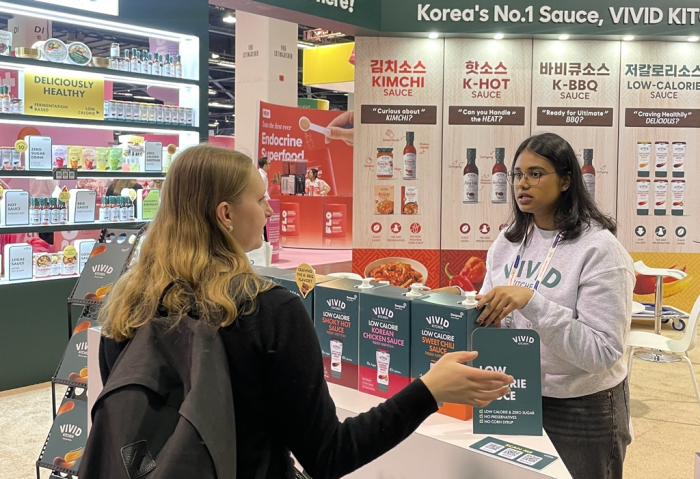
In South Korea, there were recently unpleasant disputes over the runaway success of Netflix’s animated film KPop Demon Hunters: It’s all foreign – the producers and the money to make the film capitalizing on the popularity of K-culture, or anything that’s Korean.
Round two: Korea’s signature spices and sauces.
The once-niche market for Korean condiments is rapidly turning into a global battleground, with multinationals such as Kraft Heinz and Unilever joining the fray alongside Korea’s biggest food groups.

Exports of so-called K-sauces – spanning fiery Buldak stir-fry sauces, mellow ssamjang pastes, or thick, savory and spicy dipping sauces, and table-ready gochujang blends – reached $296 million in the first eight months of this year, according to Korean alternative data platform KED Aicel on Thursday.
If the current trends continue, shipments are forecast to top $440 million by year-end, more than 10% higher than the record $401.8 million in 2024.
The figures understate actual growth, given that many overseas producers are also expanding local manufacturing capacity, analysts said.

GLOBAL APPETITE FOR KOREAN CUISINE
The boom reflects the surging global appetite for Korean cuisine, fueled by K-pop, television drama series and the broader “Hallyu” or the cultural Korean wave.
In response, five Korean food majors – CJ CheilJedang Corp., Daesang Corp., Dongwon Home Food Co., Otoki Corp., and Samyang Foods Co. – have stepped up exports, while mid-tier players such as The Born Korea Co., run by TV celebrity and chef Paik Jong-won, are targeting overseas markets with Korean sauces for business-to-business (B2B) transactions.
Korean companies are pursuing a “dual-track” approach: selling in bulk to restaurant chains and franchises, namely a B2B strategy, while also cultivating a consumer-facing retail presence, dubbed B2C, a business-to-consumer strategy.

Samyang Foods recently secured a deal to supply its Buldak sauce (fiery chicken-flavored sauce) to US-based casual Chinese food chain Panda Express, while CJ CheilJedang has begun supplying ssamjang to 80 outlets of itsu, a UK quick-service restaurant chain.
On the consumer side, Korean sauce makers are trying to replicate the success of Sriracha in the US table-sauce market.
CJ CheilJedang and Daesang are marketing diluted, less fiery versions of gochujang at US supermarkets.

Dongwon Home Food, meanwhile, is betting on health trends with its low-sugar Vivid Kitchen line, now available on Amazon and set to launch at Hawaii’s Sam’s Club later this year.
GLOBAL CHALLENGERS
Multinationals are also muscling in.
Earlier this year, Kraft Heinz released a Korean-style barbecue sauce, while Unilever has launched a gochujang sauce for India.

Lee Kum Kee Co., the Hong Kong-based sauce group known for oyster sauce, now offers a range of Korean-inspired fermented marinades.
US-based McCormick & Company has rolled out a B2B Korean-style gochujang barbecue seasoning, betting on the Korean sauces’ growth potential in the North American market.
Industry officials warn that Korean companies risk being overtaken if they don’t scale quickly.
“Global food groups, with their established distribution networks, are moving fast to imitate K-sauces,” said an executive at a Korean sauce maker in Seoul. “For Korean players, speed and brand differentiation will be critical to holding onto first-mover advantage.”
By Yun-Sang Ko
kys@hankyung.com
In-Soo Nam edited this article.















